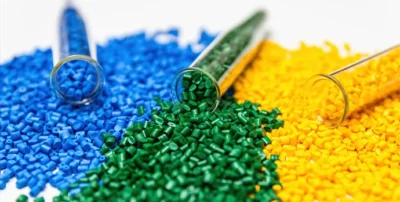
Environmental Impact of Using Bio-based Additive Masterbatch
Introduction
In an era where environmental consciousness is at the forefront of industry discussions, the plastic manufacturing sector faces growing scrutiny. Plastics have long been a target for environmentalists due to their non-biodegradable nature and contribution to pollution. However, recent innovations in the field of specialty additives are offering a glimmer of hope. Bio-based additive masterbatch, a rising star in the plastics industry, has the potential to reduce the environmental impact of plastics significantly. In this blog, we’ll delve into the fascinating world of bio-based additive masterbatch and explore its environmental benefits.
Understanding Bio-based Additive Masterbatch
Before we dive into the environmental benefits, let’s clarify what bio-based additive masterbatch actually is. In simple terms, it’s a type of specialty additive masterbatch that enhances the properties of plastic materials. What makes it unique is, its primary ingredient – biomaterials derived from renewable resources. These can include plant-based polymers like starch, polylactic acid (PLA), or other bio-derived compounds.
Reducing Carbon Footprints
One of the most significant advantages of using bio-based additive masterbatch is its potential to reduce carbon emissions. Traditional plastic production heavily relies on petroleum-based feedstocks, contributing to greenhouse gas emissions. However, bio-based additives harness the power of renewable resources, significantly reducing the carbon footprint associated with plastic manufacturing.
When bio-based additives are incorporated into plastics, the carbon content in the final product is predominantly derived from plants. This means that for every ton of bio-based plastic produced, there is a net reduction in CO2 emissions compared to conventional plastics. The environmental benefits extend even further when considering that the plants used in bio-based additives absorb CO2 during their growth, effectively acting as carbon sinks.
Enhanced Biodegradability
Perhaps one of the most crucial environmental benefits of bio-based additive masterbatch is its contribution to enhanced biodegradability. Traditional plastics can take centuries to break down in the environment, leading to persistent pollution. In contrast, bio-based plastics with bio-based additives have shown a greater propensity to biodegrade more rapidly.
When disposed of in appropriate conditions, bio-based plastics can degrade into harmless substances, including water, carbon dioxide, and organic matter, thanks to the action of microbes. This means reduced plastic waste in landfills and oceans and, ultimately, less harm to our ecosystems.
Reduced Dependence on Fossil Fuels
Another critical aspect of the environmental impact is the reduced dependence on fossil fuels. By substituting petroleum-based additives with bio-based alternatives, the plastics industry can help alleviate the strain on fossil fuel reserves. This not only conserves these finite resources but also reduces the environmental damage associated with their extraction and transportation.
Furthermore, the production of bio-based additives generally consumes less energy compared to their petroleum-derived counterparts. This energy efficiency is another crucial factor in reducing the overall environmental footprint of plastics.
The Importance of Sustainable Sourcing
While bio-based additive masterbatch holds enormous promise for mitigating the environmental impact of plastics, it’s essential to emphasize the importance of sustainable sourcing. Not all bio-based materials are created equal, and the benefits can be negated if unsustainable farming practices are used.
Sourcing bio-based materials responsibly ensures that ecosystems are not harmed, and biodiversity is maintained. Additionally, it guarantees that the benefits of reduced carbon emissions and biodegradability are not outweighed by unsustainable agricultural practices.
Challenges and Future Prospects
While the potential for bio-based additive masterbatch to revolutionize the plastics industry is evident, it’s essential to acknowledge the challenges that exist. First and foremost is the need for increased research and development to optimize the properties and performance of bio-based additives. These additives must match or exceed the characteristics of their petroleum-based counterparts to gain wider acceptance in the industry.
Additionally, cost remains a significant hurdle. Bio-based materials can be more expensive to produce and process than traditional plastics. However, as technology advances and economies of scale are achieved, the cost differential is expected to decrease.
The Role of Regulations
Environmental regulations and standards also play a pivotal role in shaping the adoption of bio-based additive masterbatch. Governments and international bodies are increasingly recognizing the importance of sustainable practices in the plastics industry. As a result, there is a growing push for stricter regulations on plastic production and consumption.
These regulations may incentivize manufacturers to adopt bio-based additives and shift towards more sustainable practices. In turn, this could accelerate the adoption of bio-based plastics in various industries.
Consumer Awareness and Demand
Consumer awareness and demand for eco-friendly products are driving forces behind the adoption of bio-based additive masterbatch. As more people become conscious of the environmental impact of plastics, they are seeking alternatives that align with their values. Businesses are responding to this demand by incorporating bio-based plastics into their products and packaging.
Conclusion
In conclusion, bio-based additive masterbatch is a promising innovation in the plastics industry with significant environmental benefits. By reducing carbon footprints, enhancing biodegradability, and reducing dependence on fossil fuels, it offers a sustainable pathway forward for plastic production. However, the responsible sourcing of bio-based materials, regulatory support, and consumer demand are crucial factors in realizing its full potential. As consumers and industries increasingly prioritize eco-friendly alternatives, bio-based additive masterbatch represents a significant step towards a greener, more sustainable future. With continued research and development, we can look forward to a day when plastic production aligns seamlessly with the principles of environmental responsibility, making our planet a cleaner and healthier place for generations to come. Additive masterbatch is a key element in this transformative journey.